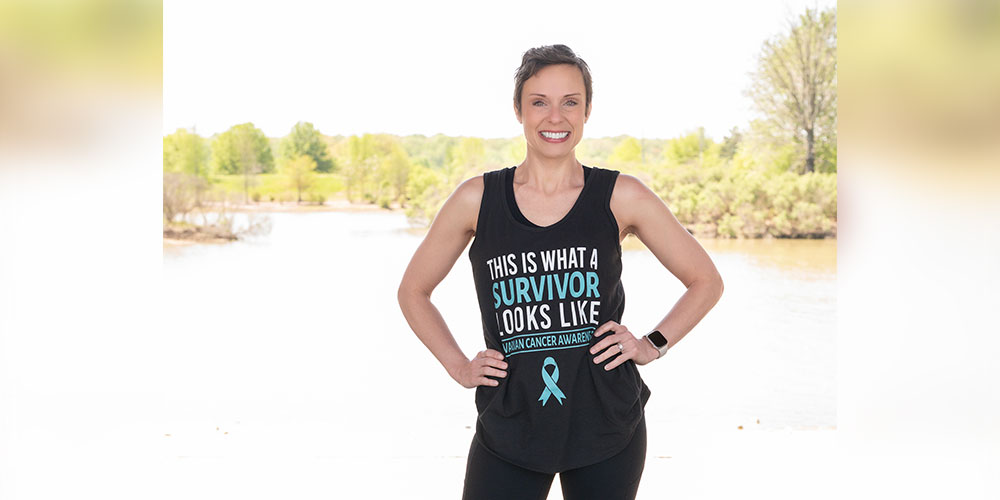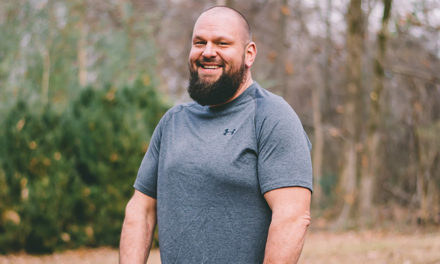It’s not often that you go in for a routine doctor’s appointment and find yourself with an ovarian cancer diagnosis. This happened to wife and mother of four, Rachel, 38, who hopes other women will not ignore the signs.
Before her diagnosis, Rachel lived a pretty normal life. She went to the gym thrice weekly, ate healthy, and enjoyed recreational activities like comedy and Memphis Grizzlies games.
Yet, last January, very subtle symptoms began to emerge, such as lower abdominal and hip pain and some minor bloating before her period. Doctors sent her home, suggesting she avoid wearing heels as being the probable cause.
So, when Rachel returned in March for a routine annual exam and birth control refill appointment, a vaginal ultrasound and CA125 blood test revealed something much worse was brewing.
“I had some fear but was not totally surprised. My mom died of ovarian cancer in 2016, and I had tested positive for the genetics.” Currently, there are no standard screening protocols.
She was referred to Baptist Women’s Health and assigned a Gynecological Oncologist, Dr. David Engle.
“They called me the next day and got me in for a physical examination within two weeks.”
The following month, Rachel went in for what was supposed to be a 1.5-hour surgery to remove her fallopian tubes and ovaries but ended up losing part of her colon and having her intestines rerouted when doctors discovered the cancer had spread there.
“I have good days and bad days, but for the most part, I just keep living life,” Rachel explains of having to rely on others to drive and cook her meals, in addition to using the bathroom through a stoma and colostomy bag, among other drastic changes.
After undergoing six rounds of chemotherapy post-op, Rachel underwent a bowel reversal surgery to reconnect her intestines to her colon and then began maintenance chemotherapy in January. This preventative drug is administered for two years after a diagnosis due to the cancer’s high recurrence rate.
Despite all the complications Rachel experienced and continual fatigue, nausea, and ‘chemo brain,’ Rachel seems hopeful and cheerful.
“Baptist has been phenomenal. My nurse Michelle was so helpful with anything I needed. I’m a pretty optimistic person, so I knew if I followed the doctor’s recommendations, I would be okay,” she explained.
To stay active, Rachel takes to the streets. “I love to walk. I try to walk around my neighborhood daily on the same two-mile route. Just being out in the weather and sunshine really helps my mental and emotional health.”
Because ovarian cancer symptoms are subtle and tend to get overshadowed by more female-prevalent cancers, Rachel advises women to speak up if they think something is off. Symptoms often include abdominal bloating, feeling full too quickly when eating, pelvic pain or pressure, and changes in bowel or bladder habits.
“Advocate for yourself, get a second opinion, and don’t be scared to ask your doctor for different tests. Even if they find something small, it can be the difference between life and death if you catch it early enough.”
By Shlomit Ovadia
Photo by Brooke Simpson







